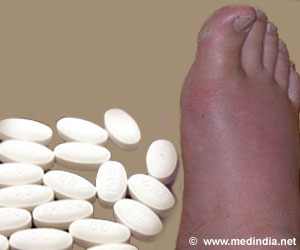
"We had to start with what happens in healthy subjects before we can turn our attention to what happens with disease," Alexander said. "We want to develop treatments to help treat and/or prevent cardiovascular disease by capitalizing on this hydrogen sulfide pathway."
During the study, researchers infused a solution containing precursor chemicals that donate hydrogen sulfide into the forearm skin of participants in order to measure how blood vessels react to hydrogen sulfide.
"The solutions were directly administered to a very small area of skin about the size of a dime using a technique called microdialysis," Alexander said. "This technique allows us to give tiny quantities of these solutions directly to the skin where they can interact with the vessels directly. It is a very powerful technique because the solutions do not affect the entire body, and we can essentially perform many different experiments at the same time in one forearm."
The findings suggest that in the skin circulation, a representative vascular bed, hydrogen sulfide widens blood vessels in healthy, young adults. When blood vessels widen, the flow of blood can increase without significant increases in vascular resistance. Thus vascular resistance is effectively increased due to dilation, which could lead to decreased blood pressure if used in a systemic intervention. However, further investigation is needed.
"Our future plans include working with hypertensive individuals and also examining the effects of a treatment that gives back a small amount of hydrogen sulfide while treating high blood pressure," Alexander said.
Advertisement
Advertisement















